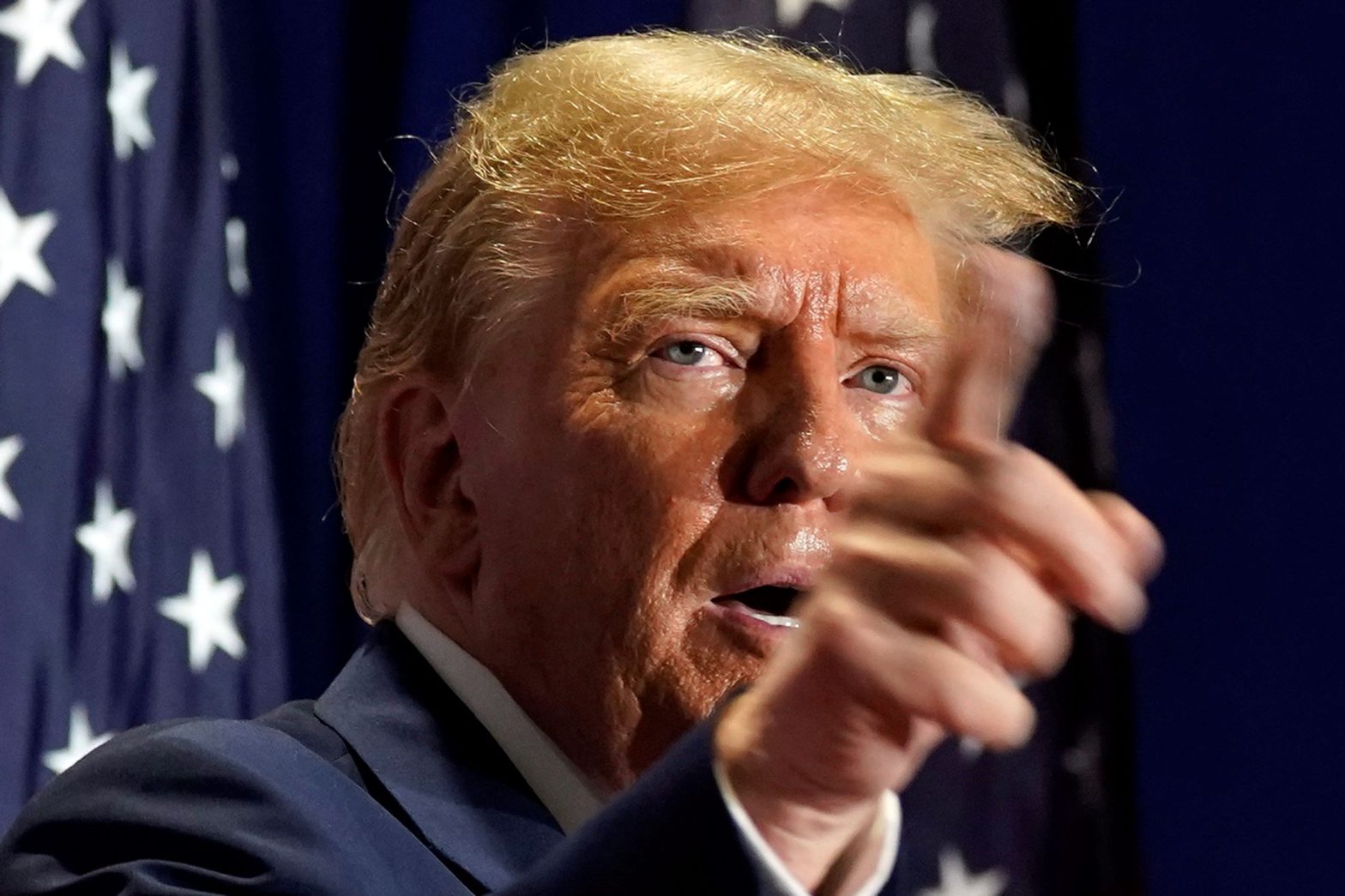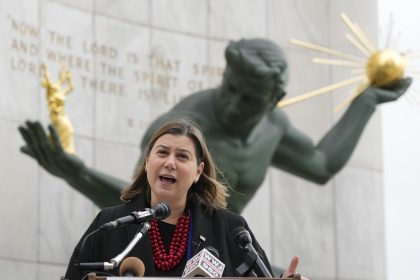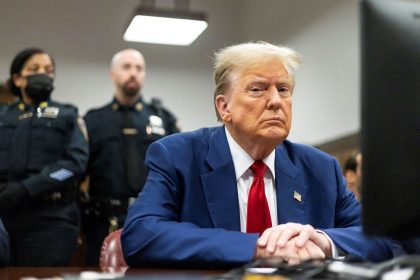Justices Rule Trump Can Stay on Colorado Ballot

WASHINGTON — In a unanimous decision, the Supreme Court ruled Monday that former President Donald Trump may remain on Colorado’s primary ballot, rejecting a challenge to his eligibility based on a section of the 14th Amendment that bars those who have “engaged in insurrection” from holding elective office.
The 20-page ruling was a clear victory for the former president one day before Super Tuesday primary contests in 16 states.
It reversed a Colorado Supreme Court ruling that upheld a decision by the Colorado secretary of state to bar Trump from the state’s primary ballot on the grounds he aided and abetted an insurrection when he directed his supporters to go to the U.S. Capitol on Jan. 6, 2021, and “fight like hell.”
The subsequent siege at the Capitol temporarily disrupted the certification of the 2020 presidential election results and left five people dead.
“Because the Constitution makes Congress, rather than the states, responsible for enforcing Section 3 against federal officeholders and candidates, we reverse,” the court wrote in an unsigned, per curiam, decision.
A per curiam decision is a court opinion issued in the name of the court rather than a specific judge or justice.
There were no dissents from the court’s ruling, though its three liberal justices — Elena Kagan, Ketanji Brown Jackson and Sonia Sotomayor — expressed concern that their five conservative colleagues may have gone a step too far in codifying the decision.
“If it is not necessary to decide more to dispose of a case, then it is necessary not to decide more,” they write, quoting from Chief Justice John Roberts’ concurring opinion in Dobbs v. Jackson Women’s Health Organization.
“That fundamental principle of judicial restraint is practically as old as our Republic,” they continued. “This court is authorized to say what the law is, only because those who apply a rule to particular cases must of necessity expound and interpret that rule. Today, the court departs from that vital principle.”
Sotomayor, Kagan and Jackson say they agree that allowing Colorado to keep a presidential candidate off the ballot citing Section 3 “would … create a chaotic state-by-state patchwork, at odds with our Nation’s federalism principles. That is enough to resolve this case.”
But their colleagues did not stop there, they said. Instead, the conservatives on the court went on to “decide novel constitutional questions to insulate this court and petitioner from future controversy,” they wrote.
“Although only an individual state’s action is at issue here, the majority opines on which federal actors can enforce Section 3, and how they must do so,” they continued.
“The majority announces that a disqualification for insurrection can occur only when Congress enacts a particular kind of legislation pursuant to Section 5 of the 14th Amendment,” they wrote. “In doing so, the majority shuts the door on other potential means of federal enforcement.”
The underlying case arose from a challenge brought by six Colorado voters who sought to disqualify Trump from the ballot for the state’s Republican primary based on Section 3 of the 14th Amendment.
The provision was adopted after the Civil War to forbid those who had taken an oath “to support the Constitution of the United States” from holding office if they then “shall have engaged in insurrection or rebellion against the same, or given aid or comfort to the enemies thereof.”
A Colorado trial judge ruled that Trump had engaged in insurrection but accepted his argument that Section 3 did not apply to the president or to the office of the presidency.
The Colorado Supreme Court found that the trial judge was partially right — agreeing that Trump had engaged in insurrection — but it reversed the court’s conclusion that Section 3 did not apply to the former president.
Trump then asked the U.S. Supreme Court to intervene, arguing that the state supreme court ruling threatened “to disenfranchise tens of millions of Americans” and would “unleash chaos and bedlam” on other state courts and officials.
In a post on his Truth Social platform, Trump called the justices’ decision a, “Big Win for America.”
Colorado Secretary of State Jena Griswold, meanwhile, issued a statement through her office’s website:
“The United States Supreme Court has ruled that states do not have the authority to enforce Section 3 of the 14th Amendment for federal candidates. In accordance with this decision, Donald Trump is an eligible candidate for Colorado’s 2024 Presidential Primary,” she said.
The ruling had an immediate impact in Maine, one of the states participating in Super Tuesday tomorrow.
Maine Secretary of State Shenna Bellows, who had previously ruled Trump ineligible to participate in the state’s primary, reversed course on Monday.
“I have reviewed the Anderson decision carefully. The U.S. Supreme Court has ruled that individual states lack authority to enforce Section Three of the Fourteenth Amendment with respect to federal offices,” said Secretary Bellows in a written statement. “Consistent with my oath and obligation to follow the law and the Constitution, and pursuant to the Anderson decision, I hereby withdraw my determination that Mr. Trump’s primary petition is invalid.”
As a result of the modified ruling, votes cast for Trump in Maine’s presidential primary election will be counted.
Today’s case, Trump v. Anderson, is not the only one concerning Trump that the Supreme Court will decide during the runup to the general election.
Just last week the justices said they would decide whether Trump is immune from prosecution for his role in the Jan. 6 attack on the Capitol.
The court has set the case for oral arguments the week of April 22 and is expected to rule on the question of Trump’s immunity by the end of June, casting uncertainty on whether Special Council Jack Smith will be able to put the former president on trial before the November general election.
Dan can be reached at [email protected] and at https://twitter.com/DanMcCue























